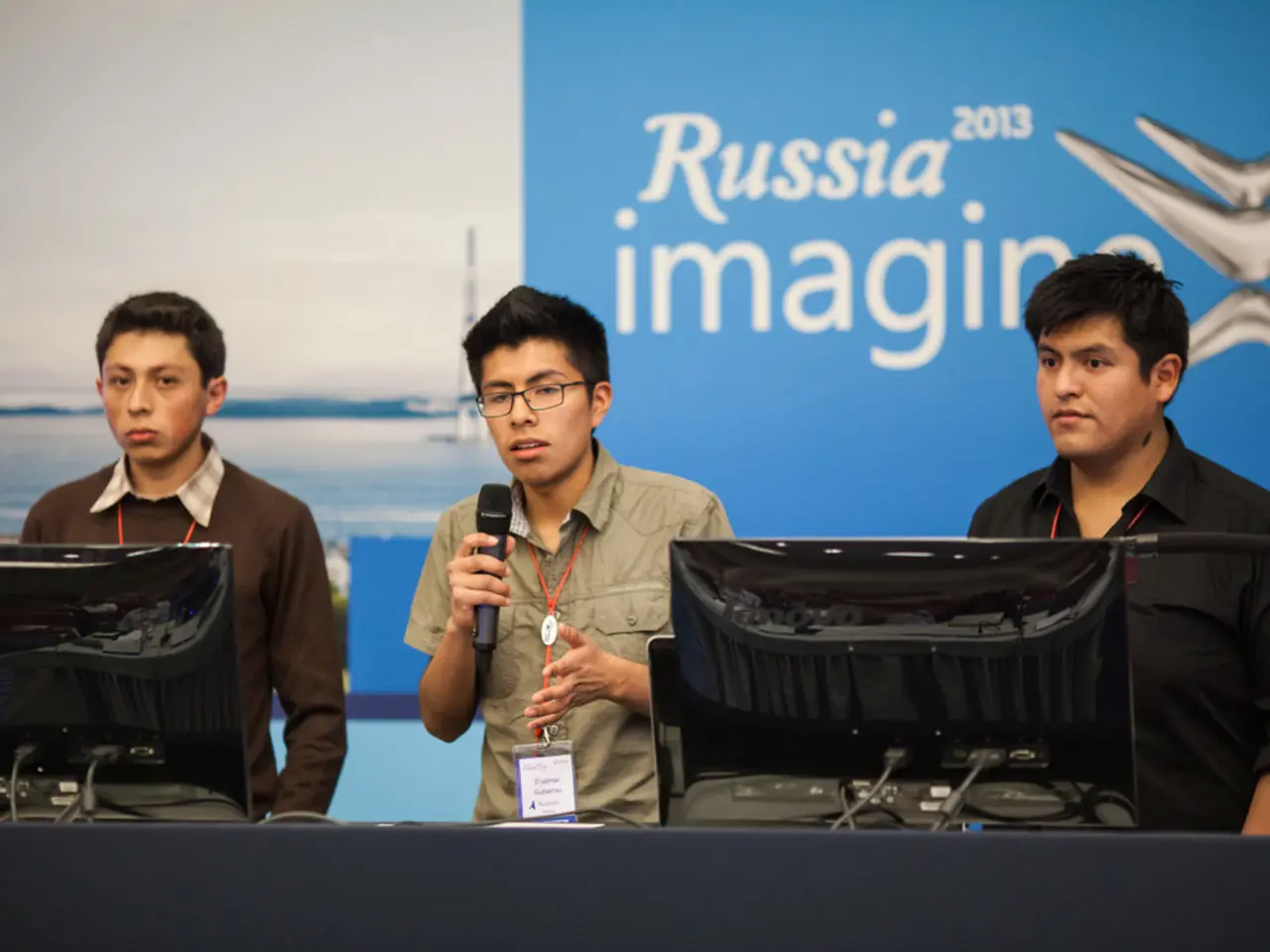Revised benefits for revisions in welfare benefits for Ukrainians citizens
In a recent ZDF summer interview, Markus Söder, head of government in Bavaria and a member of the Christian Social Union (CSU), proposed that Ukrainians living in Germany should no longer receive unemployment benefits. This proposal applies to both Ukrainians who have already arrived in Germany and those yet to come.
Currently, Ukrainian refugees in Germany receive unemployment-related social assistance under the Bürgergeld system. This system grants them rights to live, work, and access social services, with around 693,420 Ukrainians benefiting from this, receiving an average of €882 per month depending on age and family status [1].
However, the CSU's proposal sparked a significant political debate, with arguments that current payments disincentivize work. In comparison with other European countries, Germany’s support level is relatively generous, offering Ukrainian refugees social assistance payments on par with citizens' standard social benefits [1][5]. For instance, Poland recently tightened assistance rules, shifting refugee accommodation to protected groups only and signalling possible reductions in their aid from November 2025 [3].
Germany’s current government has faced criticism for the adequacy of benefits, with reports highlighting that social security payments may not guarantee an adequate standard of living [2]. To address this, the government has reinstated some sanctions against benefit recipients who refuse job offers, although with some discretion in hardship cases [2].
Michael Kretschmer, Saxony's Minister President and a member of the CDU (Christian Democratic Union), a sister party to the CSU, supports changes to unemployment benefits to apply for both Germans and Ukrainians. Kretschmer questions the state's spending on unemployment benefits and calls for scrutiny, suggesting that there are instances of people receiving unemployment benefits who may not need them [6].
The proposal by Söder, if implemented, could potentially reduce the number of people receiving unemployment benefits in Germany. It could also lead to a discussion about the eligibility of Ukrainian refugees for unemployment benefits in Germany, impacting the broader debate about the integration and support of refugees in the country [7].
In contrast to Söder, Kretschmer notes a higher proportion of people working among Ukraine refugees in other countries compared to Germany [6]. Kretschmer believes that the current spending on unemployment benefits is excessive and needs to be reduced, with the adjustments aiming to ensure that work pays [6].
The ongoing political discussions about the management of unemployment benefits in Germany, particularly in relation to refugees, underscore the complexity of the issue. Both Söder and Kretschmer's stances contribute to this debate, providing different perspectives on how to best support Ukrainian refugees while ensuring self-sufficiency and a strong workforce in Germany.
Summary
| Aspect | Germany | Other EU Countries (e.g. Poland) | |----------------------------------|-----------------------------|------------------------------------------------| | Benefit system | Bürgergeld, ~€882/month avg | Varies; Poland tightening aid from Nov 2025 | | Work participation by Ukrainians| ~33% employed among working-age refugees[1] | Not always publicly specified; Poland restricting aid | | Political proposals | Proposed abolition of unemployment benefits for Ukrainians (CSU-led)[3][5] | Less radical; Poland limiting group eligibility[3] | | Current policy status | Benefits maintained, under debate | Some aid reduction or restrictions planned |
[1] Source: Statistisches Bundesamt [2] Source: Deutscher Bundestag [3] Source: Politico [5] Source: European Commission [6] Source: ZDF morning magazine [7] Source: Reuters
- The proposal by Markus Söder is causing a significant debate in politics and policy-and-legislation, as it aims to alter the unemployment benefits for Ukrainians in Germany, potentially affecting the integration and support of refugees.
- In contrast, Michael Kretschmer supports modifications to unemployment benefits not only for Ukrainians but for Germans as well, advocating for stricter eligibility criteria and discouraging dependency on state aid, thereby maintaining a strong workforce and promoting self-sufficiency in Germany's general-news landscape.






